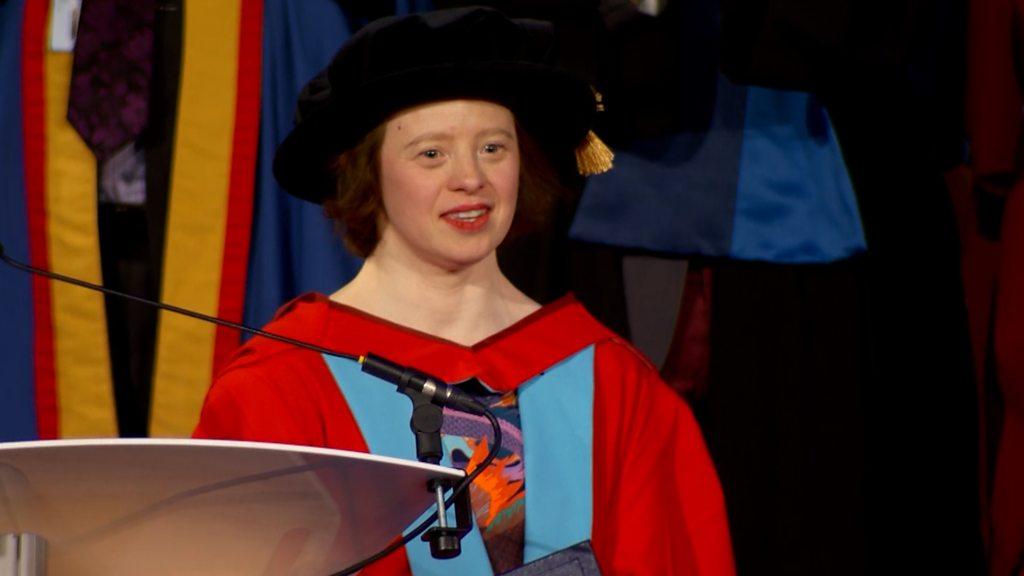Helping people with a learning disability to find love
- Published
Alison and Michael go on dates that their mothers help organise
A couple who both have Down's syndrome have spoken about how their relationship has thrived thanks to the support of their families.
Alison Williams, 35, and Michael Gallagher, 31, from Anglesey, have been together for 12 years after meeting at a sports club.
Support group Mencap Cymru said people with learning disabilities have the right to meaningful relationships.
It urged carers to help them and not to be "frightened".
For Alison and Michael, being in a relationship has led to years of happiness.
"He's my prince," said Alison.
Michael added: "I think we'll be together forever."
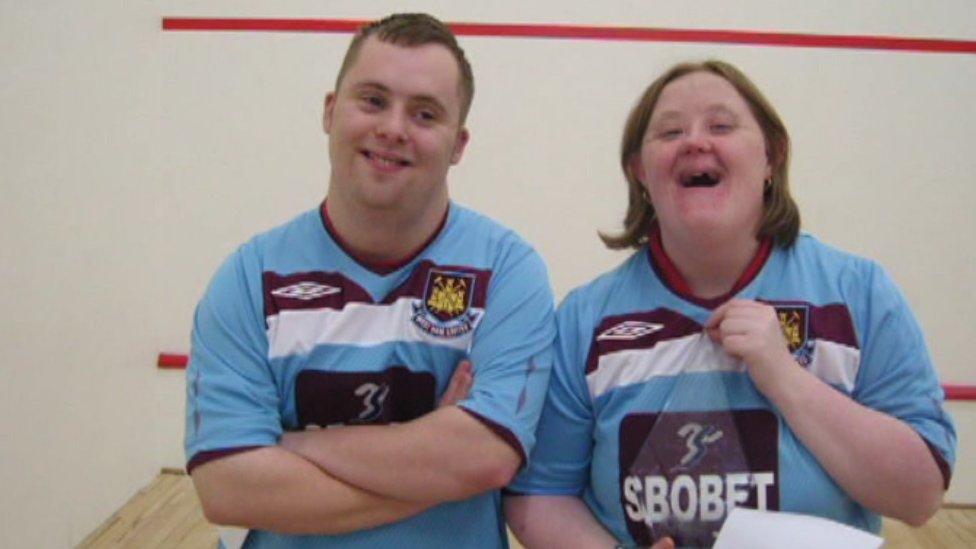
Alison Williams and Michael Gallagher's friendship started when they met at a sports club
The couple live with their families, but regularly stay at each other's homes and they enjoy holidays and hotel breaks together with the support of their mothers, who help to arrange their dates and stay nearby.
Michael's mother, Dot, said being in a relationship had been "the making" of her son.
Alison's mum, Ann, said she remembered the moment the couple's friendship became something deeper.
"They were going to a disco, Alison was dressed as Sandy from Grease and Michael was Danny," she recalled.
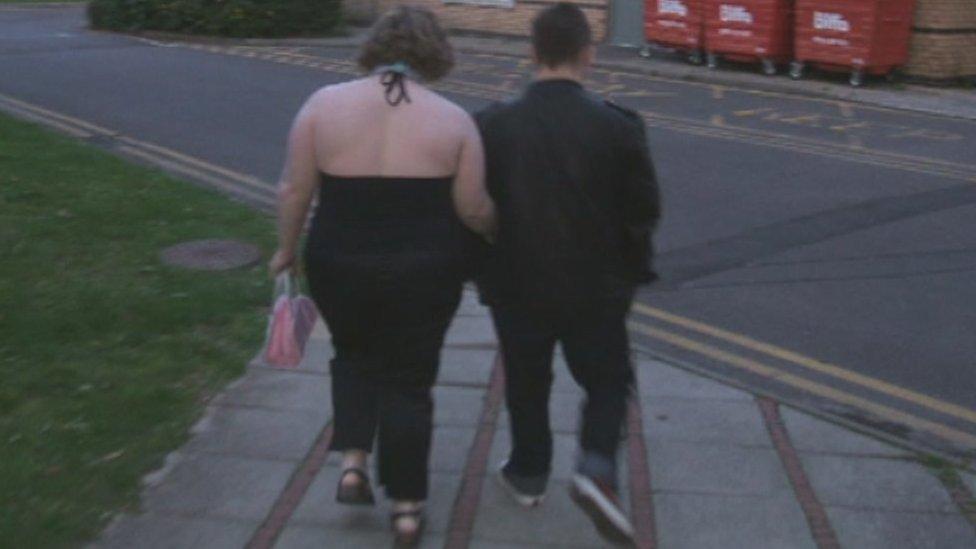
I've got chills... the couple dressed as Sandy and Danny from the musical Grease
"We were behind them and they just held hands and walked away."
The couple and their families have talked about the serious relationship and their plans for the future.
They say people sometimes ask intrusive questions about the nature of the couple's relationship but that it was "none of their business".
While public attitudes to people with learning disabilities have changed in the past 30 years, Mencap Cymru said it wanted to change the way society thinks about their rights to friendships and relationships.
It is using Valentine's Day to start a "national conversation" with people with learning disabilities, parents and support services about improving opportunities for people with a learning disability, starting with a launch at the Welsh Assembly.
Director Wayne Crocker said: "People who are supporting people with a learning disability might be frightened of the risks of an individual being involved in an intimate relationship.
"But where that individual has capacity, whether you're a parent or a support agency, your role should be to develop and help that individual have the relationship they want, that's right for them."
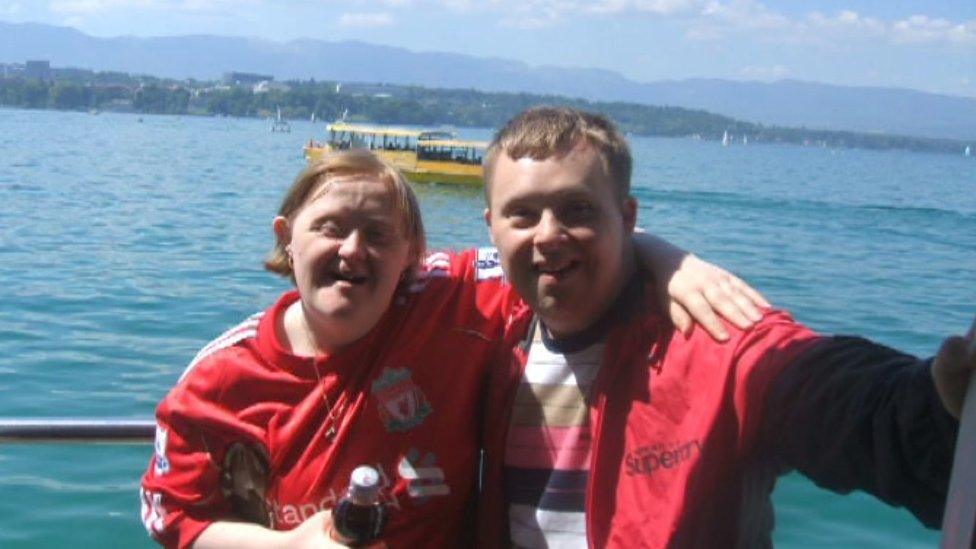
- Published5 February 2019

- Published6 January 2019
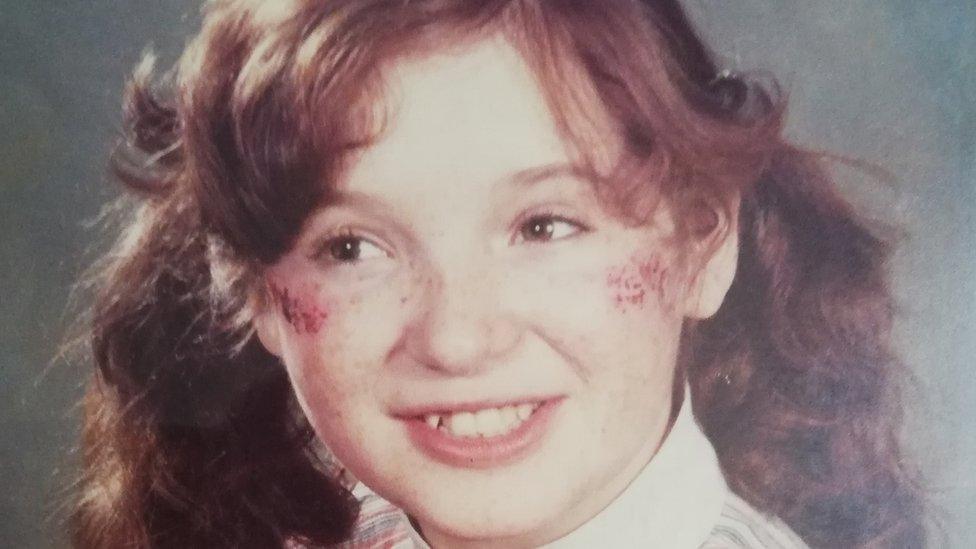
- Published12 December 2018
